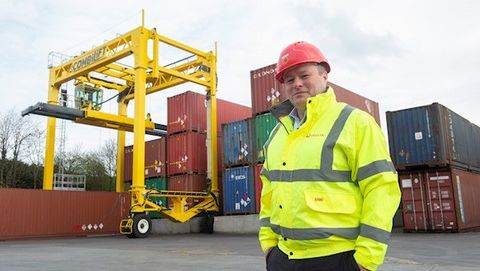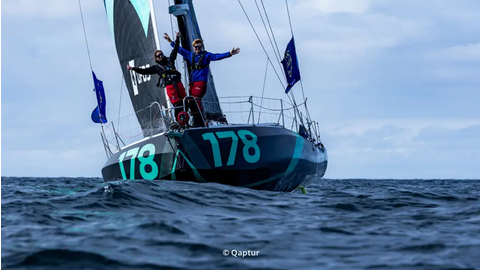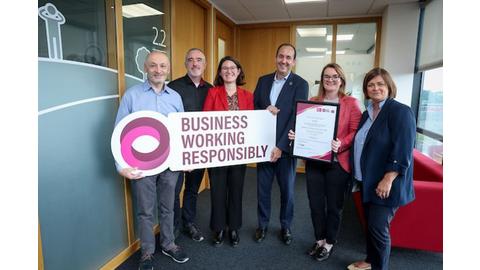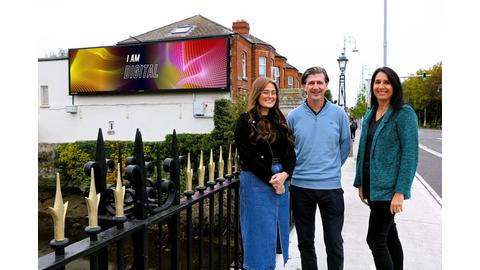Members
The Monday Interview: Declan White, southern regional director, Veolia Ireland

With Ireland failing to meet its emissions targets for next year, firms like Veolia will be crucial if we are to make amends by 2030. Pádraig Hoare talks to Declan White about how the ‘circular economy’ can help
An increasing focus on the circular economy and sustainable business practices is an exciting space to be in, according to Veolia Ireland regional director Declan White.
Mr White is part of a global firm that employs almost 700 people, providing resource management and environmental services in energy, waste and water to Ireland’s largest manufacturers.
In 2018, global revenue was €25.91bn, up from €25.1bn in 2017, with €2.1bn of that coming from UK and Ireland.
Sustainability is becoming big business for firms like Veolia, and Mr White said he has seen a shift in attitudes towards sustainability.
“We describe ourselves as specialists in resource management and environmental services, bringing energy, water and waste management expertise to large-scale clients. This includes manufacturing plants, big buildings and hospitals, as well as water and waste water treatment facilities.
“This basically means that the almost 700 people working for Veolia on the island of Ireland help our customers to have the energy and water utilities that they need in their production processes available to them in the right quantities, qualities and timings.
“We then help them to assess their production and treatment processes to identify where they can be more efficient and effective in their use of raw materials and utilities, minimise any wastes produced, and recover, recycle or dispose of any wastes in the most sustainable way possible for that organisation. When done correctly, these make large differences to our customers’ processes, their reputations and their earnings,” he said.
When the focus is on day-to-day business activities, the move towards sustainability and sustainable practices can feel slow, Mr White said. Much more can be done at policy level, he added.
“If you stand back and look at where we were 10 years ago, we have actually come a huge distance in terms of a focus on sustainability, incorporating such elements as general environmental awareness, energy efficiency, hazardous waste recycling and avoidance of landfill.
“The shift towards sustainable business practices is moving quicker than it may feel. However, is it moving at the right pace? The movement towards sustainability has to be balanced with the market conditions for a business. For example, if it is easier and cheaper for a firm to get electricity from the grid rather than from, say, a biomass boiler, then it will be difficult for that firm to justify the switch, particularly if it could mean that additional cost could send them across the line from a viable to inviable business.
“The Government and the marketplace do need to continue to work closer together towards facilitating sustainable business practices through subventions, like the Support Scheme for Renewable Heat currently being led by the SEAI and the plans to introduce other technologies and supports like biomethane grid injection in the future.
“Ultimately, we have to consider the triple bottom line of sustainability — it has to work for the company, the customer, their community and environment so that companies can be sustainable in the true sense of the word. It can be easier for larger companies to make the move towards sustainable business practices — we have to enable smaller companies to do the same.”
The so-called “circular economy” — minimising waste and making the most of resources — is becoming stronger, according to Mr White.
“It is a common term now, and people understand what it means. A number of years ago, we were one of the few companies using it and had to explain what it meant.
“For Veolia, the best way towards sustainability is the circular economy. They go hand in hand.
“You can’t achieve true sustainability without the circular economy being integral to that.
“We are not alone in this. We see first hand the continual increasing engagement of businesses right across Ireland in working towards being a driving force towards sustainability.
“One example of the kind of work that we are doing in Ireland in the circular economy would be our innovative thermal hydrolysis technology being used in the Osberstown water treatment facility.
“Here we have brought in thermal hydrolysis and changed from an energy-intensive sludge-drying process to being able to extract renewable energy, biogas, from the sludge and still produce a recycled product, in this case fertiliser.
“Thermal hydrolysis essentially makes biosolid waste material, or sludge, more biodegradable through processes involving heat and pressure.
“Elsewhere in Ireland, we are taking some industrial wastes and converting them into building materials,” he said.
The country has a way to go to meet emissions targets, he warned — but he believes the will is there.
“Ireland does have very strong commitments and technologies in place in terms of helping us to meet emissions targets, and there are very good incentives onstream and in planning, like the support scheme for renewable heat.
“It is widely accepted that we are unlikely to meet our 2020 targets, and that meeting 2030 targets could be a challenge. While it can seem like it might be a considerable challenge, there is certainly a desire there and a fantastic opportunity for Government, businesses, the various expert groups and communities to come together to develop a focused action plan and demonstrate how we can really use our technology and expertise, positioning ourselves in Ireland as the leader we have the capability to be.”
Source: IrishExaminer.com


